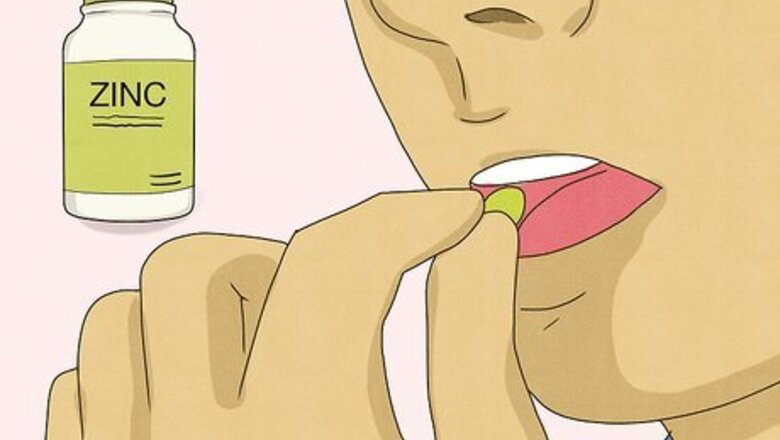
views
- Eat more meats, fruits, and veggies to increase your intake of amino acids. Include plenty of dairy in your diet to boost calcium levels.
- Take a zinc supplement. Supplements like coenzyme Q10 and Ashwagandha (Indian ginseng) may also help.
- Wear loose-fitting underwear and avoid hot tubs.
Natural Remedies
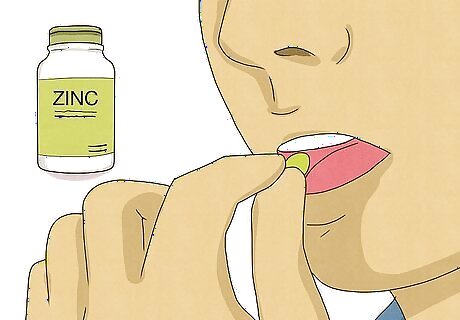
Take a zinc supplement to boost your sperm production. This mineral is associated with increased semen volume, sperm count, and testosterone levels. A blood test from your doctor can determine whether you have a zinc deficiency. If you do, ask your doctor if it is safe for you to add a daily supplement to increase your sperm volume. You can also get enough zinc from your diet if you eat foods like walnuts, beans, oysters, beef, and chicken.
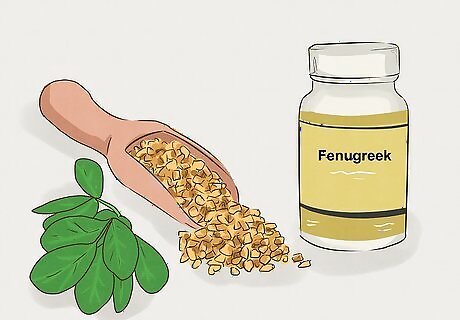
Fenugreek is a popular natural remedy for improving sperm count. Supplements made with this common medicinal herb can effectively boost libido, strength, sexual performance, and sperm health. Testofen is one such remedy consisting of fenugreek seed and minerals; a study has shown that males who took 600 mg daily for 6 weeks saw an increase in sexual activity and improved erectile dysfunction as well. Talk to your doctor about including a fenugreek supplement in your diet. Fenugreek is easy to find, as it is also used in cooking and herbal tea. However, the effects of whole fenugreek have not been studied. It’s unlikely that eating or drinking the herb would be as effective as a supplement.
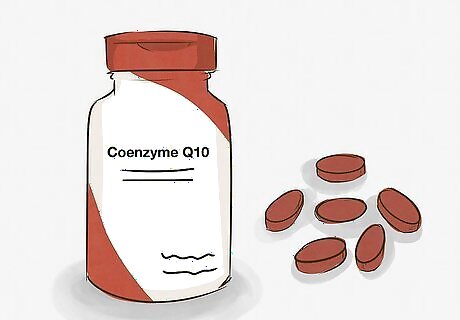
A coenzyme Q10 antioxidant supplement can improve semen quality. Evidence suggests that taking coenzyme Q10 leads to a significantly increased sperm concentration and activity. Talk to your doctor about the possibility of antioxidant supplements as a means of boosting your sperm count. Keep in mind that while coenzyme Q10 was linked to improved sperm health, it hasn’t been proven to increase pregnancy rates.
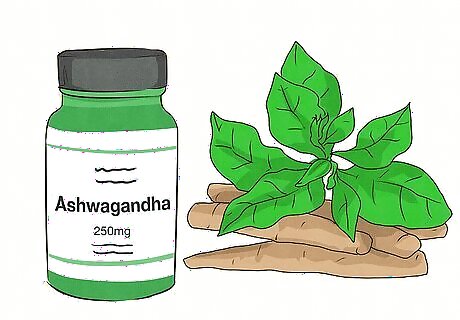
The old herbal remedy Ashwagandha (Indian ginseng) treats semen deficiency. Ashwagandha has been used as a medicinal herb for a very long time, originally to help with stress. However, studies have also suggested that, when taken as a supplement for 90 days, the herb can improve male fertility, boost testosterone levels, and improve sperm counts. Ashwagandha root extract has been proven to give significantly better results than a simple placebo.
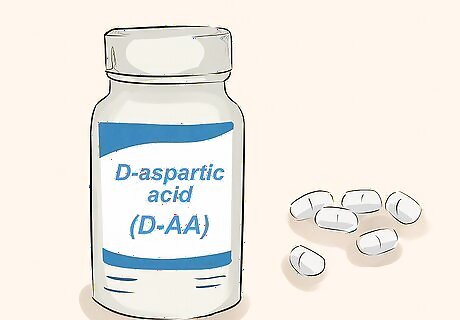
Take D-aspartic acid (D-AA) as a dietary supplement. D-AA is a type of amino acid, and research indicates that D-AA levels are significantly higher in fertile males than in infertile males. It’s also been shown that D-AA supplements can increase testosterone levels when taken for 3 months. Talk to your doctor before adding a D-aspartic acid supplement to your diet. Don’t confuse D-AA with L-aspartic acid, a more common amino acid found in many proteins.
Lifestyle Changes
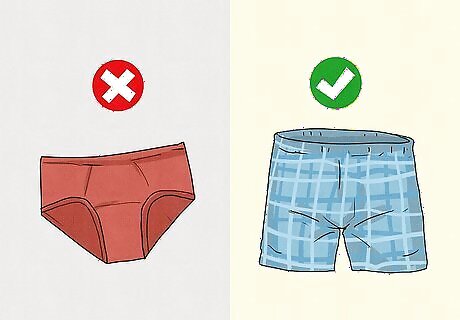
Wear loose-fitting underwear. Make sure your testicles are not jammed up against your body. If your scrotum gets too warm for a long period of time, that can hamper sperm production. That might happen with tight-fitting briefs, so switch to boxers and give your testicles some breathing room. Make sure they are nice and loose. Treat yourself to some new underwear that you like to make the transition fun for you!

Practice safe sex. Sexually transmitted infections (STIs) can cause male infertility, so make sure to take precautions if you're sexually active. Wear condoms to reduce your risk of contracting STIs. It's also smart to limit the number of partners you're with. If you're planning to conceive, you might want to make sure you're in a monogamous relationship to further reduce that risk.

Stay away from hot tubs. While it might feel great to relax in a nice soak, the heat levels are bad for sperm volume. High levels of heat on your scrotum can deter sperm production. Avoid hot-tubbing when you are trying to create a baby. Take a warm, relaxing shower instead. Your testicles aren't submerged, so it's not harmful.

Reduce your stress levels. Stress can interfere with the hormones needed to assist in sperm production. It's totally normal to worry about trying to increase your sperm volume, but try to find ways to chill out a little. It will be very helpful. One of the best things you can do for stress is to get enough sleep. Aim for 7-9 hours every night. Try activities like yoga, meditation, or journaling. Spend time with friends, go for a walk, or watch a funny show. Laughter is good for you.
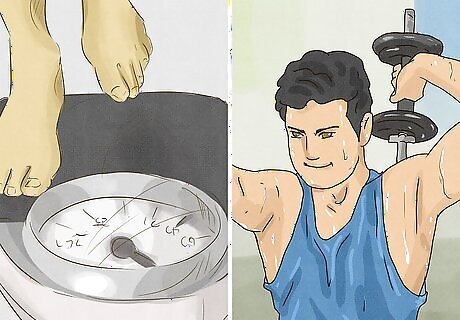
Maintain a healthy weight. Being too large — or too small — can affect hormonal balance. Too much estrogen or too little testosterone will have a negative impact on your sperm count. Discuss a healthy weight for you with your doctor and ask for recommendations on how to reach that weight. Remember that everyone is different.
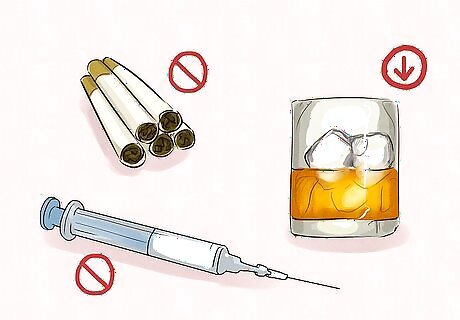
Quit smoking, don't do drugs, and cut back on drinking. Certain lifestyle habits, which stress your body and immune system, can lead to a lower sperm count. If you are trying to make a baby, it's best to refrain from smoking, doing recreational drugs (including steroids), and limit alcohol consumption. Limit yourself to 2 alcoholic drinks per day. If you need help quitting smoking, ask your doctor about some options that might work for you.
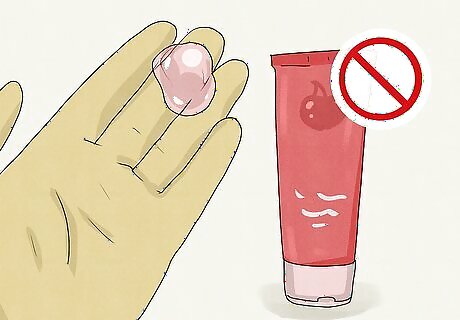
Stay away from lubricants during sex. Even though they might increase pleasure, lubricants might reduce sperm count. That's because lubricants, including saliva, lotions, and gels, can interfere with sperm movement. It's best to avoid using them when trying to conceive. If you need lubrication, try using vegetable oil, peanut oil, or a lubricant such as PreSeed, which may not harm your sperm.

Limit your exposure to toxic chemicals and radiation. Toxic chemicals and radiation can cause permanent damage to sperm. If you regularly work with toxic chemicals, be sure to wear protective covering (gloves, masks, etc.) so you limit exposure to your skin. Avoid areas that you know produce too much radiation and only opt for medical procedures involving radiation if absolutely necessary.
Dietary Changes and Supplements
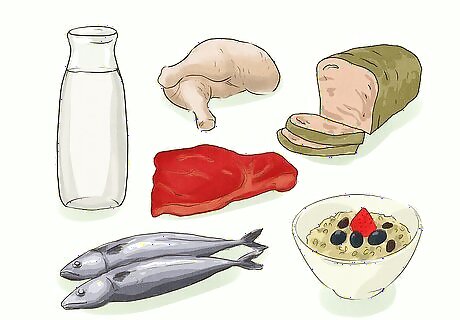
Add more amino acids to your diet. Amino acids, traces of which can be found in meats, fruits, and vegetables, are believed to increase sperm count and keep the sperm from clumping. They may also increase sperm motility. Amino acids that you can incorporate into your diet include: L-Carnitine, which can be found in red meat and milk L-Arginine, which can be found in fish, poultry, red meat, and whole grains If you aren’t getting enough naturally in your diet, you can also talk to your doctor about amino acid supplements for both L-Carnitine and L-Arginine.
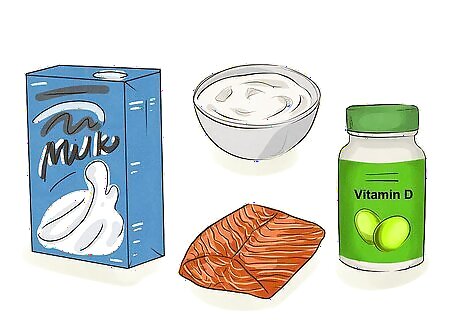
Increase your daily amounts of calcium and vitamin D. Ask your doctor to determine if you are deficient in these nutrients. A deficiency might hamper sperm production, so talk about your options. You can take supplements of both, or spend significant time in the sun so your body can synthesize vitamin D, and eat plenty of yogurt, skim milk, and salmon to boost your calcium intake. If you do spend more time in the sun, be sure to lather up with some sunscreen to prevent damage from harmful rays and possible melanoma. Talk to your doctor about whether or not you need supplements. It can vary from person to person.
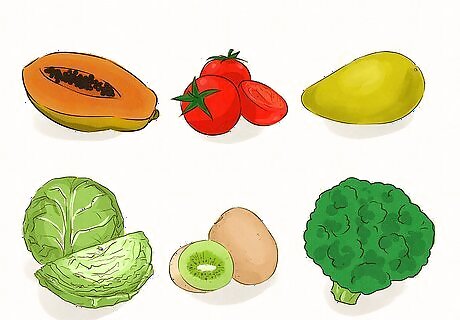
Eat several servings of fruits and veggies each day. These foods are rich in antioxidants, which might actually improve the health of your sperm. Make it a point to eat several servings of each per day. Try adding a helping of each to each meal you eat. You can also snack on veggies throughout the day to up your intake. Smoothies are a great way to add a lot of fruits and veggies to your day. Try a mix of greens, berries, a banana, and some almond milk. Blend and enjoy. Salads are another simple way to make sure you're getting plenty. Try a mixture of kale, apples, and broccoli with a lemon vinaigrette. It's delicious and good for you.
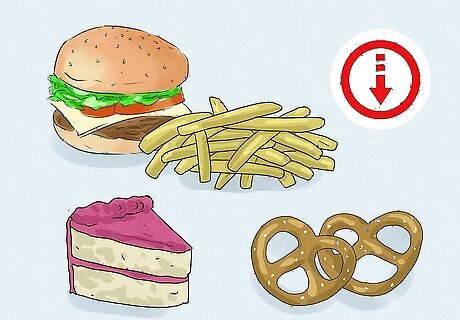
Cut back on processed foods and saturated fats. Pre-packaged foods are typically processed and they are usually really high in sodium and cholesterol. Choose fresh foods when you can. Stay away from items like boxed cereals and microwavable meals. When you're trying to improve sperm volume, switch to a diet low in saturated fats and high in protein. Saturated fats decrease sperm volume while healthy fats can help increase it. Avoid fatty cuts of meat and items like bacon and sausages. Go for chicken breast or pork cutlets instead. Choose healthy fats like avocado, nut butter, and olive oil instead.




















Comments
0 comment